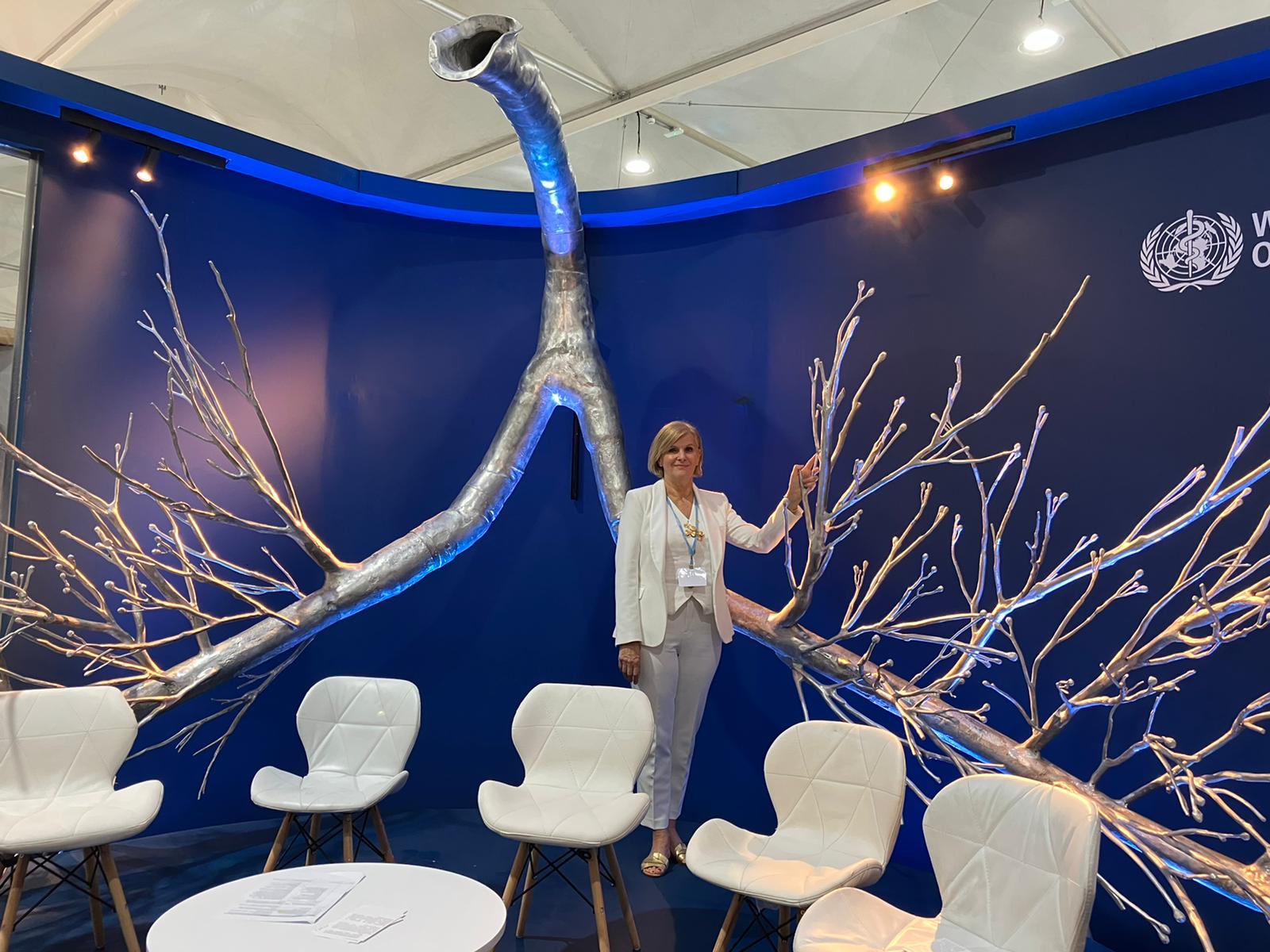‘Lives are in their hands’: World mayors must act to cut pollution or more people will die, WHO warns
Exclusive: Dr Maria Neira says the World Health Organisation could monitor the number of lives saved from cutting air pollution
Your support helps us to tell the story
From reproductive rights to climate change to Big Tech, The Independent is on the ground when the story is developing. Whether it's investigating the financials of Elon Musk's pro-Trump PAC or producing our latest documentary, 'The A Word', which shines a light on the American women fighting for reproductive rights, we know how important it is to parse out the facts from the messaging.
At such a critical moment in US history, we need reporters on the ground. Your donation allows us to keep sending journalists to speak to both sides of the story.
The Independent is trusted by Americans across the entire political spectrum. And unlike many other quality news outlets, we choose not to lock Americans out of our reporting and analysis with paywalls. We believe quality journalism should be available to everyone, paid for by those who can afford it.
Your support makes all the difference.Urgent action must be taken to curb the rising number of deaths caused by air pollution, the director of public health and environment at the World Health Organisation (WHO) has said.
Dr Maria Neira said mayors around the world could either continue to preside over congested, traffic-filled cities and see more people die, or accelerate the transition to green transport systems to significantly reduce mortality from air pollution.
“How much are you prepared to have on your shoulders the responsibility for those deaths?” she asked of the world’s regional leaders in an interview with The Independent at Cop27.
Dr Neira said the World Health Organisation can measure the positive impact of cutting air pollution on the number of lives saved. “We can tell you how many lives you’re saving,” she said. “It’s up to you to be very ambitious in deciding how many people you want to save.”
Air pollution kills an estimated seven million people worldwide every year, while 99 per cent of the world breathes air that exceeds WHO guideline limits, with people in developing countries suffering from the highest exposure.
“The combustion of fossil fuels is literally, literally killing us,” said Dr Neira.
She went on to mention the case of nine-year-old Ella Kissi-Debrah, the first person in the UK whose death was acknowledged to have been caused by air pollution, and praised the work that Ella’s mother, Rosamund Kissi-Debrah, has done campaigning for Britain to toughen up the limits on air pollution.
“That’s what we need,” she said, adding that a huge silver sculpture of lungs that hugs the stage in the WHO’s pavilion at Cop27 is dedicated to Ella.

Speaking at the summit, Dr Neira called on world leaders to come up with an ambitious commitment to transition to clean, renewable resources of energy “now”, and to produce evidence that the world is keeping its commitment to limit global heating to 1.5C above pre-industrial levels. She said that finance needs to be made available to ensure that healthcare facilities and frontline health workers can adapt to a changing climate, and that more epidemiological surveillance is needed in relation to diseases that are already emerging or becoming more widespread as a result of global heating.
In Asia, for example, there is a risk that the prevalence of dengue fever and malaria could increase by almost 40 per cent due to global heating, she said. In Pakistan, approximately 10 per cent of healthcare facilities were washed away during the recent extreme flooding, leaving millions without access to care.
More broadly, she said, there needs to be more emphasis on preventing health problems rather than just treating them. Twenty-five per cent of global mortality is linked to environmental risk factors, such as a lack of safe water, poor sanitation or air pollution, but only 3 per cent of resources are spent on prevention, she said.
The money doesn’t have to come from health budgets, but the decisions taken by the energy sector and the government are key, said Dr Neira.
“If the ministry of energy in your country is taking the decision to accelerate the transition to renewables, he’s already doing health, and paying for health ... same with the ministry of agriculture, the ministry of environment,” she said.

Dr Neira said she is “fully convinced” that the need to protect human health is the argument that will change the speed and the level of ambition with which nations seek to tackle the problem of global heating. Environmental destruction and climate change pose the biggest threat to human health, as air pollution and heat stress exacerbate health conditions, while deforestation, the trade of wildlife, and “aggressive” agricultural practices can cause epidemics such as the coronavirus, she added.
If global heating continues at pace, air pollution, heatwaves, waterborne diseases, vector-borne diseases, and malnutrition will get worse and will mean that hospitals need to prepare to increase their capacity in order to cope with a “public health disaster”, she said. The strides forward in world health in recent years also risk being lost, added Dr Neira, including progress in curbing malnutrition.
However, if the world acts to reduce global heating and stop destroying ecosystems, the health benefits will be “enormous”, she said. Ending deforestation, for example, could limit the potential for new epidemics to break out, and accelerating the transition to clean sources of energy would reduce air pollution and save lives.
People having to live in very polluted cities is “unacceptable”, she added.
Dr Neira said that the WHO had been warning for two decades that environmental risk factors affect people’s health, pointing out that 20 years ago the organisation published a report titled “Our Planet Our Health”, and last year put out a study on the same subject.
“It’s somehow frustrating,” she said.
But she remained optimistic: “The more we make sure that everyone understands the connection between climate change and pollution and health, the more they will put pressure on the politicians, and the more the health argument will accelerate action.”




Join our commenting forum
Join thought-provoking conversations, follow other Independent readers and see their replies
Comments